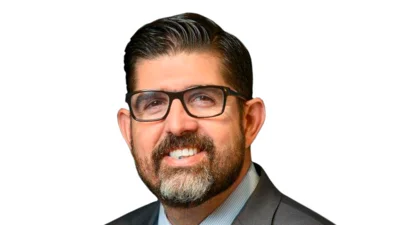Mayor John E. Dailey | John E. Dailey Official Website
Mayor John E. Dailey | John E. Dailey Official Website
Exhibition Premieres in Conjunction with Tallahassee's Bicentennial Celebration
The City of Tallahassee's John G. Riley Center/Museum for African American History & Culture is again welcoming crowds to enjoy a major exhibition and see its fresh renovation. "African Americans in Tallahassee: The Antebellum Period" is the theme of the multifaceted show that runs through October.
The exhibition offers a comprehensive narrative of resistance, resilience and success against all odds. It is the first of a four-part, four-year series that chronicles the history of Blacks in the Capital City from the Antebellum Period to the Civil Rights Era. It will be followed by "The Civil War, Emancipation and Reconstruction" (October 2024); "The World Wars and Post-War Life" (Fall 2025); and "The Civil Rights Era" (Fall 2026).
"Using oral histories, artifacts, photos and newly rendered maps and illustrations, we highlight some of the many Tallahassee families who trace their ancestral roots back to one of the many plantations in the area," explains Aron L. Myers, Ph.D., the museum's Executive Director.
The exhibit begins in the Visitor Center and ends in the historic Riley House next door, exploring Tallahassee during its establishment in Territorial Florida in 1824 and the many contributions the enslaved made to the economy through institutional slavery. It also examines the "maroon communities," safe, but often temporary havens for runaways, and it profiles several free Blacks who called Tallahassee home before the Civil War.
An interactive kiosk displays lyrics and plays the tunes of spirituals that date back to the Antebellum Period. Impressive portraits and biographies of Black Tallahassee residents of historical interest are an integral feature of the exhibition, including Johnathan Gibbs, the Florida Secretary of State responsible for the establishment in 1887 of what is now Florida Agricultural & Mechanical University (FAMU), and William Gunn, M.D., Tallahassee's first African American medical doctor who began his career as the driver for a local physician who subsequently financed Gunn's medical education.
A companion coffee table book, "African Americans in Tallahassee: From the Antebellum Period to the Civil Rights Era," and a documentary by the same name are planned for production in the future. This coming April, in partnership with Visit Tallahassee, the Riley Museum will release a children's book, Luke and Leila's Tallahassee Adventure. According to the storyline, Luke and Leila go on a scavenger hunt around town, visiting more than 28 sites, including the Old Capitol, the two universities and the Museum of Florida History.
The gallery spaces at the Riley House are in tip-top shape thanks to a recent renovation, with grant funding provided by the Florida Department of State. Myers said the nearly $285,000 historical grant helped protect the infrastructure of the museum against future environmental or catastrophic threats. "It addressed exterior and interior stabilization and restoration needs and hardened the 134-year-old house." Renovations include repaired and restored floors and walls and new windows throughout the two-story building.
The John G. Riley Center/Museum is located at 419 E. Jefferson Street. The museum is open Tuesdays, Wednesdays and Thursdays from 10 a.m. to 4 p.m. for guided tours, which include a stop at the Smokey Hollow Commemoration, and self-guided tours. It is open Fridays, Saturdays, Sundays and Mondays by appointment. In the gift shop, visitors can buy museum memberships, books, Riley House mugs and tee shirts and more. For more information, visit rileymuseum.org or call 850-891-3560.
Sponsors for the current exhibit include the City of Tallahassee, Florida Division of Arts and Culture, Florida African American Heritage Preservation Network, Council on Culture & Arts and Visit Tallahassee.
Celebrate Black History Month and learn more about local history with a visit to the John G. Riley Center/Museum, where research, education and discovery remain a focus. Its tours and exhibits bring an awareness of and appreciation for the contributions African Americans have made to the local community and society. It has produced more than 50 historical publications and documentaries and mentored more than 75 student interns since its establishment in January 1996. The historic Riley House was constructed in 1890 and is currently operated and maintained by the City of Tallahassee.
Original source can be found here.


 Alerts Sign-up
Alerts Sign-up